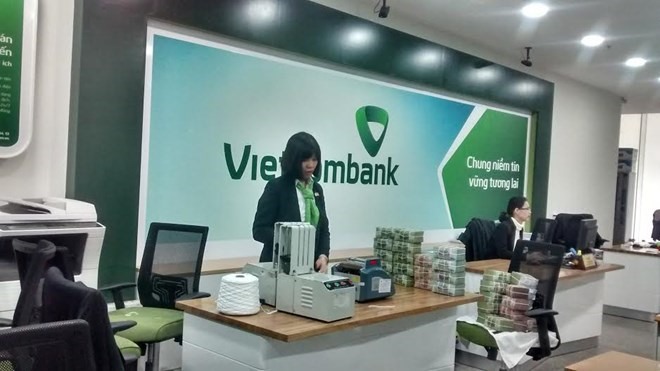 Economy
Economy

The Government is directing ministries and agencies to raise capital for State-owned commercial banks through the use of dividends or share sales this year.
 |
| Vietcombank needs to raise capital to meet BASEL II standards. - VNA/VNS Photo |
HÀ NỘI – The Government is directing ministries and agencies to raise capital for State-owned commercial banks through the use of dividends or share sales this year, Deputy Prime Minister Vương Đình Huệ said at a recent meeting.
Huệ revealed the news after four State-owned banks – Vietcombank, Agribank, BIDV and VietinBank – proposed the capital hike at the meeting on bad debt resolution last week as they are facing difficulties to fulfill the plan.
Currently, the banks are under great pressure to hike capital to satisfy the State Bank of Việt Nam (SBV)’s regulations to meet Basel II standards in 2020. Under SBV’s Circular, banks must maintain a capital adequacy ratio (CAR) of at least 8 per cent as per Basel II norms, starting in 2020. With the new regulation, the CAR of the banks will fail to reach the minimum level set by the SBV if they fail to increase capital.
Basel II is the second of the Basel Accords, which are recommendations on banking laws and regulations issued by the Basel Committee on Banking Supervision.
At the meeting, Nghiêm Xuân Thành, Chairman of Vietcombank, asked the Government and SBV to consider increasing capital of State-owned banks or allowing the banks to either retain dividends or issue private placement shares to foreign investors to ensure both the value of the State capital and the interests of shareholders.
According to Thành, the divestment of the banks is currently facing difficulties due to complicated regulations.
Besides being large and prestigious institutions from developed countries, foreign qualified buyers are also required to hold the stake for at least one year, Thành said, adding it was hindering investors as the stock prices in the market constantly fluctuate.
Under the current legal regulations, the sales of the banks’ stake must be also in large lots and the sales price must not be lower than the market price, Thành said.
Vietcombank had so far still failed to find partners from developed economies who agree to pay the bank’s shares at the market listed price – or nearly four times of the bank’s book value, Thành said, adding that market listed prices of leading banks’ shares in the region, not only in Southeast Asia but also in Asia, only double that of the banks’ book value.
It also takes BIDV several years to find a strategic partner, but no one paid as high as the bank’s market listed price of over VNĐ30,000 per share.
While facing difficulties in the divestment, the banks are not allowed to keep profits for the capital hike purpose as they still have to pay dividends in cash, which are supposed to be paid to the State budget. Representatives of State capital at State-owned banks often require to vote for dividend payout to be in cash at the banks’ annual general meetings so that the State receives money from dividends.
Last year, for example, it was estimated the State budget got nearly VNĐ6.1 trillion (US$268.7 million) extra from the dividend payout of three State-owned banks – VietinBank, Vietcombank and BIDV. - VNS




